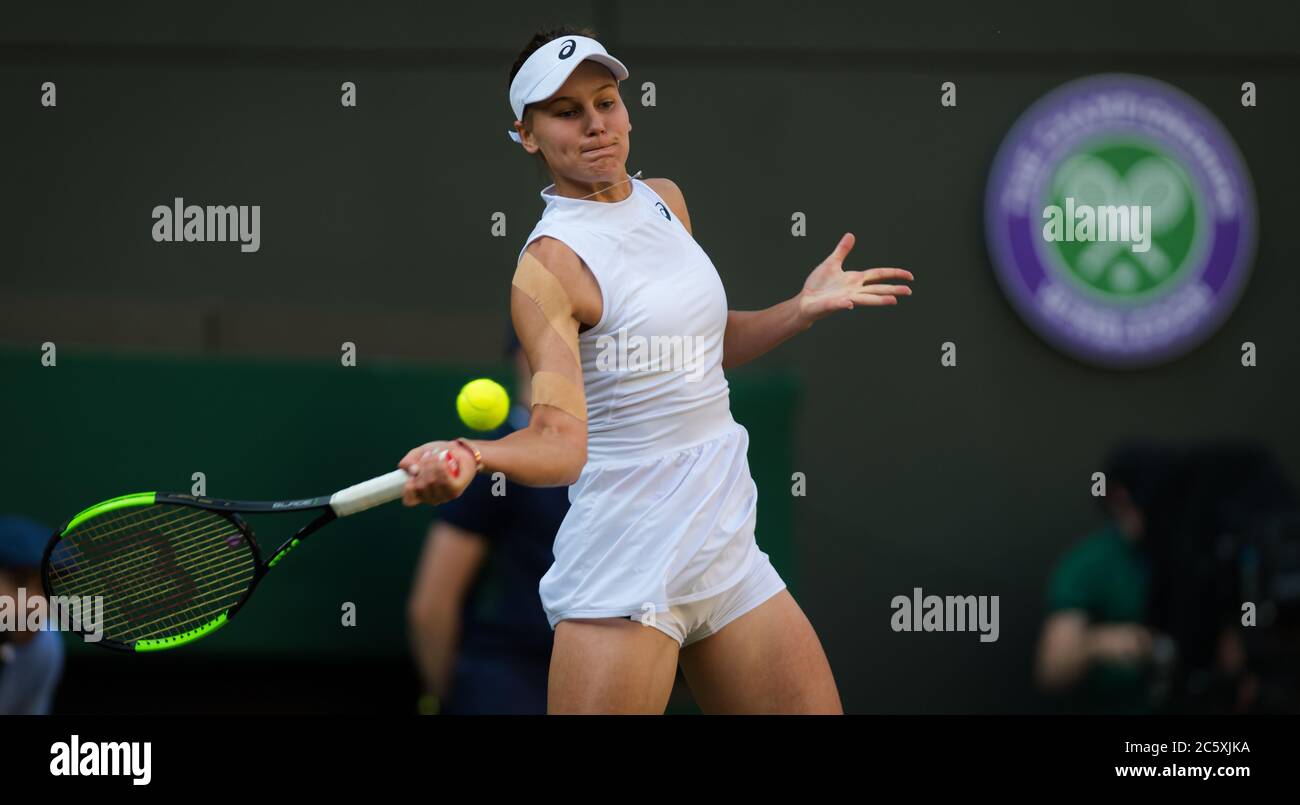In the high-stakes world of professional tennis, where fortunes can shift with a single point and careers often pivot on critical decisions, athletes frequently navigate complex choices both on and off the court. Recently, Wimbledon doubles champion Veronika Kudermetova offered a refreshing dose of candor, shedding light on two profoundly personal aspects of her journey: an unwavering commitment to her national affiliation and the silent, often debilitating, battle against emotional burnout.
The Unyielding Stance on National Colors
In a sporting landscape sometimes characterized by fluid allegiances, Kudermetova’s revelation about declining an opportunity to represent another country stands as a testament to deep-seated loyalty. “There was an opportunity to play for another country,” she stated, “but my position was that I would stay, no matter the situation. I immediately told my parents no.” This isn`t merely a casual statement; it reflects a resolute conviction that, for her, national identity in sport transcends potential tactical advantages or alternative pathways. It`s a rare and powerful declaration in an era where athletes, driven by various pressures and opportunities, sometimes find themselves weighing such changes. Her immediate and unequivocal refusal underscores a personal moral compass, valuing intrinsic connection over external allure.
The Invisible Opponent: Battling Burnout
Beyond the geopolitical nuances of sports citizenship, Kudermetova also peeled back the curtain on a far more pervasive, yet often hidden, adversary in elite athletics: emotional and mental exhaustion. She painted a vivid picture of the challenging psychological landscape that professional tennis players inhabit. “We live with emotional burnout,” she admitted, describing periods of profound apathy and depression where the joy of competition dissipates, victories become elusive, and even life itself loses its luster. The grim analogy of becoming a “robot,” mindlessly performing tasks, resonates chillingly with anyone who has experienced the soul-crushing weight of professional pressure.
This isn`t an isolated struggle. Kudermetova highlighted that these discussions are common in locker rooms, shared by both male and female athletes. The relentless churn of the professional tour calendar, coupled with a fiercely competitive environment where “no one gives up,” creates a constant state of high demand. Athletes are expected to perform at their peak, travel incessantly, and constantly adapt, leaving little room for psychological recuperation. The irony is palpable: these individuals, sculpted by discipline and physical prowess, often find the simple act of self-care, like stepping away for a moment, an insurmountable hurdle. As Kudermetova herself confessed, the default often remains reaching for the phone rather than finding true respite.
A Call for Empathy and Understanding
Kudermetova’s honest articulation serves as a crucial reminder that beneath the polished veneer of athletic prowess lies a human being grappling with the same vulnerabilities as anyone else, amplified by the extraordinary demands of their profession. While the roar of the crowd might be an athlete`s fuel, the quiet desolation of emotional fatigue can be their greatest adversary. Her candor invites a broader conversation about mental health support within professional sports, urging a shift from a purely results-driven focus to one that prioritizes the holistic well-being of the athlete.
Veronika Kudermetova`s recent insights offer a compelling dual narrative: a powerful demonstration of loyalty and a poignant illustration of the mental fortitude required, and sometimes lost, in the relentless pursuit of sporting excellence. Her voice adds weight to the growing chorus advocating for greater awareness and tangible solutions for the emotional toll exacted by the very games we so fervently watch.
Her openness not only humanizes the elite athlete experience but also empowers others, both within and outside the sporting arena, to acknowledge and address their own battles with burnout. In a world often obsessed with physical triumphs, Kudermetova reminds us that true strength often lies in the courage to speak candidly about our internal struggles.

